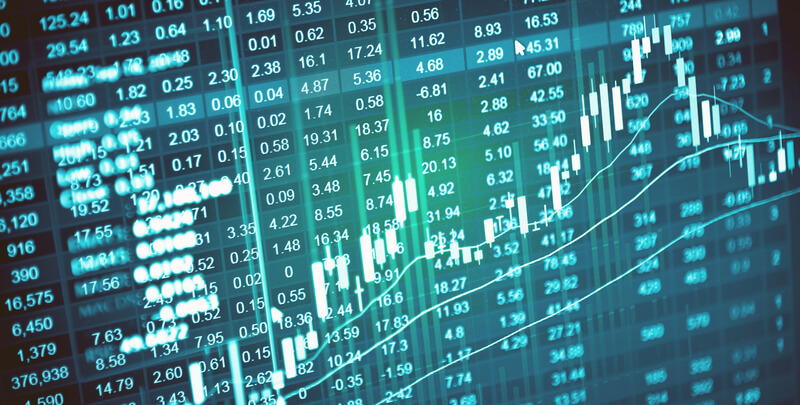Where to exchange currency without paying huge fees?
Going abroad and in need of foreign currency? In this article, we'll explore where to exchange currency - from good deals to the places you should avoid.

Exchange rates are simply the value at which one currency can be converted to another. Because this value is constantly changing, the floating exchange rate is always in flux. This confusing situation can cost anyone who regularly transfers money across currencies.
Exchange rates fluctuate due to a wide range of interrelated factors, but the market reaction to changes is rarely so straightforward. It’s not as simple as watching the exchange rate and knowing with certainty that exchange rates will rise or fall when certain levers are pulled. Instead, exchange rates move due to a mix of art and science, hyper logical data-driven analysis, and the quirks of human psychology.
It’s not possible to accurately predict what will happen to an exchange value, and when; if it was, we would all be Forex millionaires. But if you regularly transfer your cash between currencies, you might be interested in the mechanics at work behind the exchange rate.
Here’s a beginner’s guide to the factors that influence changes in exchange rates.
Supply and demand is the most basic factor affecting exchange rates. It’s relatively easy to understand, but not always easy to predict. In simple terms, when there's an excessive supply of something the value attached to it decreases, while an increase in demand raises value.
The factors detailed below can impact supply and demand of currency, and cause the exchange rate to fluctuate. However, more deliberate factors may also be at play. For example, governments might intervene in the currency markets to cause their national currency to rise or fall in value. If they're concerned with exporting more products, then it makes sense to lower the value of the local currency to make themselves more competitive. This can be achieved by buying up foreign currencies to increase their value, and lower the local currency by comparison.
On the other hand, speculation by investors, individuals and funds, can cause changes in an exchange rate; especially if there’s momentum which triggers a run on a currency. For example, if investors agree that a particular country has a shaky economy, they might believe that the currency value will drop in the future, and withdraw their investments before it does so. As they sell their currency, the supply on the open market increases, causing the value to drop further. As this happens, more investors are alerted to the fall in price and scramble to sell too, resulting in a shift in the exchange rates on offer.
Inflation is the rate at which goods and services rise in cost over time; while interest rates reflect the charges made by banks for individuals to borrow money (or, conversely, the earnings accrued on savings). National bodies, such as the UK’s Bank of England or the Federal Reserve in the US, manage national interest rate targets to balance inflation and keep the economy growing. The two are naturally linked because lower interest rates tend to lead to more people borrowing money, increasing spending and ultimately pushing up costs. Increased interest rates can reduce spending, keeping costs low but ultimately risking economic stagnation.
It’s a tightrope walk, and the exchange rates react to changes in both inflation and interest rates. Either can be seen as an indicator of current and future economic performance and can have an impact on investors and currency traders throughout the globe. The announcement of an increase in interest rates, for example, might cause the local currency to rise in value. This happens because investors see the opportunity to realise greater returns from their savings and buy into the local currency when an increase takes place.
Think of this as the nation’s bank account. The balance of trade describes the difference in value between the goods and services one country buys from abroad, versus the value of goods and services the country sells to others. If the nation is buying more than it’s selling, then the balance of trade is in deficit. If more is exported than imported, the country has a balance of trade surplus.
This matters to exchange rates. If a country buys in more than it sells, it needs more foreign capital than it's receiving through exporting local goods. This creates a demand for foreign currencies which can increase their value on the open market. On the other hand, there’s likely to be an excess of local currency which isn't being used because more is being spent abroad. This excess supply drives down the value of the local currency, meaning that when there is a balance of trade deficit, the local currency is likely to lose value against foreign currencies.
Just as individuals have credit histories, so do nations. Ratings agencies such as Moody’s and Standard & Poor’s, give whole countries a credit rating based on their likelihood of defaulting on any public debts they might have - and this can have a bearing on the exchange rate.
Because major infrastructure projects and other public sector initiatives can be a great way to stimulate economic growth, governments are fond of embarking on them when times are tough. Naturally this requires investment, which might have to be borrowed - creating public debt. This can worry foreign investors, who are concerned about the possibility of default or the rising inflation that sometimes accompanies large public debts. The end result is something of a game of chicken - some public debt might stimulate economic growth and be a real draw to global investors. Too much debt and the opposite might happen. If foreign investors are wary of investing in the local currency, there will be an over supply and the exchange rate will fall.
This may be the most complex factor of all. There’s nothing the markets like less than instability. Investors, faced with the prospect of change in the political or economic situation in a country, might be tempted to cash in their assets and move them to a more stable environment. This can cause the exchange rate to crash.
The complexity here comes from the fact that the whole global economy and political landscape is interwoven - now more than ever. So decreasing growth in the Far East has a huge knock on impact in the global economy. The prospect of political change in the US, or changes to the shape of the European Union, can cause an upheaval in the markets around the world.
It's almost impossible to predict precisely how investors and businesses will react to the multitude of changes that happen around them. While some fluctuations are predictable, others aren't. Rapid political change can cause seismic and unpredictable shifts - such as the nationalisation of industry seen in Venezuela under Chavez. Other unexpected events like wars and terrorist attacks can equally cause volatility in the exchange rates as investors seek the safest places for their money.
Changing exchange rates can be a headache if you travel frequently, send money home, or draw earnings in a currency that's different to your local one. Watching the markets change can give some indication as to the best time to make transfers, but it’s not foolproof - even professional Forex traders get it wrong.
If you’re trading relatively small amounts of currency, opaque rates, high charges and complex platforms are your biggest enemies. Watch the market by all means, but leave the bets to the pros, and instead look for the best deals available when you want to switch currencies.
When exchanging your money consider using Wise, for low and transparent fees. With Transferwise, you can transfer money between bank accounts using the real mid-market exchange rate. It's a quick and convenient way to get your cash, with no hidden fees.
*Please see terms of use and product availability for your region or visit Wise fees and pricing for the most up to date pricing and fee information.
This publication is provided for general information purposes and does not constitute legal, tax or other professional advice from Wise Payments Limited or its subsidiaries and its affiliates, and it is not intended as a substitute for obtaining advice from a financial advisor or any other professional.
We make no representations, warranties or guarantees, whether expressed or implied, that the content in the publication is accurate, complete or up to date.

Going abroad and in need of foreign currency? In this article, we'll explore where to exchange currency - from good deals to the places you should avoid.

In this article, explore Sentbe: Its Features and Benefits. Discover how this service streamlines transactions & check out a great alternative option.

Should I exchange money before traveling to Europe? Gain insights in this article for making informed decisions about currency exchange before your trip.

Sendwave vs Wise: Comparing features, benefits, and more. Explore this article for insights on international money transfers.

Unlocking Nala Money Transfer: Explore this service's features and benefits in this article. Discover seamless ways & alternatives to send and receive funds.

In this article, dive into a Paysend vs Wise comparison. Discover the distinctions in features, costs & benefits of these international money transfer services.